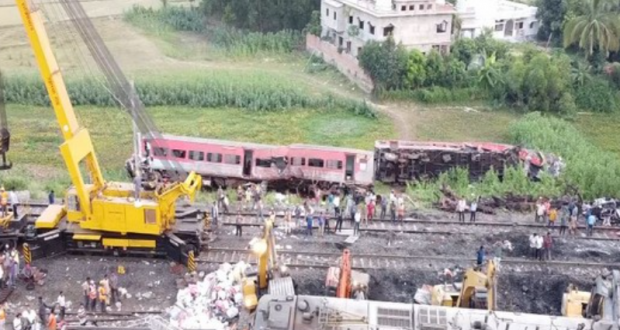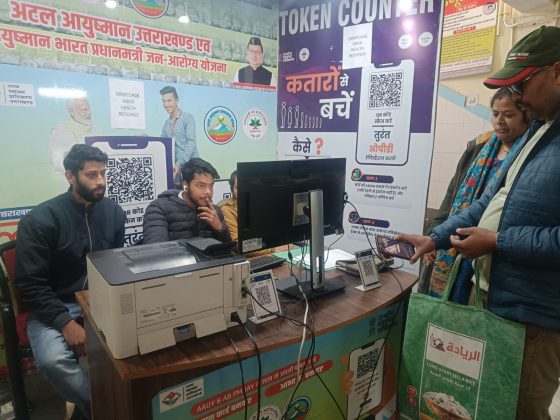DAINIK NATION BUREAU : A recent tragic incident involving a train in Odisha has highlighted the importance of ensuring safety measures and strict adherence to protocols in the railway sector. According to a report released by the Railways, the accident was primarily caused by human error. The incident serves as a somber reminder of the need for continuous vigilance and improvement in order to prevent such mishaps from occurring in the future.
The Odisha Train Tragedy: On the morning of June 27, 2023, a passenger train derailed near the town of Jagatsinghpur in Odisha, resulting in multiple fatalities and injuries. The train, which was traveling from Bhubaneswar to Cuttack, veered off the tracks, causing several coaches to overturn. This shocking incident shook the entire nation and raised questions about the safety protocols followed by the Indian Railways.
The Railways Report Findings: In the aftermath of the accident, the Indian Railways launched a thorough investigation to determine the cause of the tragedy. The report concluded that the primary cause of the derailment was human error. The investigations revealed that the train was traveling at an excessive speed on a curved track, surpassing the safe limits. This violation of speed regulations resulted in the loss of control and subsequent derailment.
The report further highlighted the role of the train operator in the accident. It was found that the operator had neglected to apply the brakes in a timely manner as the train approached the curved section of the track. This crucial error compounded the effects of the excessive speed, leading to the catastrophic derailment.
Lessons Learned and Ensuring Safety: The Odisha train tragedy underscores the critical need for a comprehensive safety culture within the Indian Railways. While the incident was primarily attributed to human error, it is essential to address the systemic issues that may have contributed to the accident. A proactive approach to safety should involve a combination of proper training, strict adherence to safety protocols, and the use of advanced technologies to prevent similar incidents in the future.
Firstly, improving training programs for train operators should be a priority. Emphasis must be placed on the importance of adhering to speed limits, being aware of track conditions, and promptly responding to potential hazards. Regular refresher courses and simulated training exercises can help enhance their preparedness and decision-making skills.
Secondly, the Railways must ensure the strict enforcement of safety protocols and regulations. Regular audits, inspections, and maintenance checks should be conducted to identify any potential risks or equipment failures. It is crucial to have robust mechanisms in place to identify and rectify safety concerns promptly.
Lastly, leveraging technology can significantly enhance safety measures. Implementing advanced signaling systems, automatic braking systems, and onboard monitoring systems can provide real-time data to operators and authorities, helping to identify and mitigate risks before accidents occur.
The Odisha train tragedy serves as a stark reminder of the grave consequences that can result from human error in the railway sector. The Railways report has shed light on the need for enhanced safety measures, improved training, and the implementation of advanced technologies to prevent similar accidents in the future. By addressing these aspects, the Indian Railways can strengthen its commitment to passenger safety and work towards ensuring a reliable and secure transportation system for all.
 Dainik Nation News Portal
Dainik Nation News Portal


